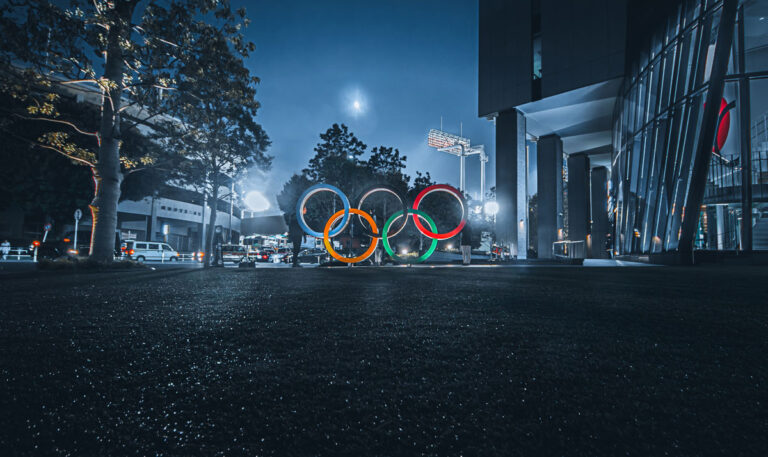A breakdown of the 2020 Tokyo Olympics scandals from racism to sexual assault

1. US fencer facing sexual assault allegations
The most recent controversy hitting the headlines is that of US fencer Alen Hadzic. According to a report from USA Today, Hadzic—Team USA’s men’s épée alternate—who is facing accusations of sexual impropriety, lost his appeal to move into the Olympic Village at the Tokyo 2020 games. The 29-year-old athlete’s movements are being restricted while in Tokyo, including isolating his stay to a hotel separate from the athletes staying at the Olympic Village. This has been characterised by USA Fencing as a “safety plan.”
Although Hadzic’s attorney—Michael Palma—denied the recent accusations put to him, he did confirm that the fencer faced a school year-long suspension from Columbia University from 2013 to 2014, following an investigation regarding sexual consent. Buzzfeed News reported that six women fencers, including two Olympic athletes, voiced their concerns to the Olympic committee—citing that the fencer should not be allowed to represent the US. One Olympic fencer—who even filed a complaint against Hadzic for predatory behaviour—told Buzzfeed, “He’s being protected again and again.”
2. Sha’Carri Richardson’s ban
While a white man accused of sexual misconduct is allowed to play, a black woman who smoked cannabis to deal with her mother’s death has been banned. Sha’Carri Richardson, a 21-year-old American sprinter, will be missing the 2020 Olympics after testing positive for marijuana. Richardson received a month-long ban—which began on 28 June—as well as USA Track and Field electing to leave her off the Olympic team. It also meant her record-breaking time at the US Olympic trials was “chalked off.”
Richardson cited that the use of the drug stemmed from the loss of her mother and the subsequent pressure she was under to perform. Her ban has been labelled as an anti-black move at the time and now? Even more so. A recent Forbes article titled ‘Cannabis Takes The World Stage At The Tokyo Olympics’ showcasing white athletes, like Megan Rapinoe, using CBD as part of their training has sparked outrage. Although THC—which Richardson was banned for—is still on the banned substances list, it showcases an obvious example of discrimination against black women in sport.
3. Swim cap racism
The anti-blackness towards black female athletes continues. Swimming caps designed specifically for natural black hair will not be allowed for use at the Olympic games. The swimming hats are designed and made by Soul Cap. GB swimmer Alice Dearing—the first black female swimmer to represent the country at the Olympics—partnered with the brand to “break down barriers for BAME swimmers.” The International Swimming Federation (FINA) stated they were unsuitable because they do not follow “the natural form of the head.”
Alice Dearing’s co-founding member of the Black Swimming Association, Danielle Obe, told The Guardian that this ban showcases the systemic inequalities in the sport, saying, “We need the space and volume which products like the Soul Caps allow for. Inclusivity is realising that no one’s head shape is ‘normal’.” Following the backlash, FINA has since apologised and is currently reviewing its decision on the swimwear accessory.
4. Black women runners banned for high testosterone levels
Two Namibian track and field stars have been banned from competing in the women’s 400m race at the 2020 Olympics. Christine Mboma and Beatrice Masilingi—both aged 18—were at the top of their sport, with Mboma breaking the World 400m Under-20s record this year. They were front-runners for Olympic medal winners but all that changed after their banning. The reason? Their naturally high testosterone levels.
We’ve seen this case before with another black woman—Caster Semenya. In 2018, World Athletics ruled that athletes who have higher than the normal level of testosterone found in women would give those athletes an “unfair advantage.” Mboma and Masilingi are the latest successful athletes to be affected by the ridiculous rule that has since crippled Semenya’s career, as she too misses the Tokyo games.
@screenshothq The #Olympics truly seem to hate #blackwomen | Follow for updates on culture, news, the weird & the wonderful #GetGrafting #shacarririchardson
♬ Shipyard Sample OriginalMix - Official Sound Studio
5. Holocaust jokes and bullying
The opening ceremony director of the Tokyo 2020 Olympic games—Kentaro Kobayashi—was fired on the eve of the games due to a resurfaced video of him making a joke about the Holocaust in a 1998 comedy performance. Seiko Hashimoto, the Organising Committee president, told the Associated Press, “We found out that Mr Kobayashi, in his own performance, has used a phrase ridiculing a historical tragedy. We deeply apologise.”
This comes after news of Keigo Oyamada’s—the Tokyo Olympics composer—resignation after previous boasts of bullying disabled classmates surfaced. Writing on social media Oyamada said, “I sincerely accept the opinions and advice I have received, express my gratitude, and will keep them in mind for my future actions and thoughts. I apologise from the bottom of my heart.”
The IOC is to blame
When looking at the controversies that have followed the Tokyo Olympics, it is unfortunately important to note that this is not a door to discrimination, disrespect or racism towards Japan. Many of the above decisions and situations are a result of a number of organising bodies—particularly the International Olympics Committee (IOC).
Japan has been under pressure this entire year about how it would handle the Olympic games during a pandemic with medical experts, its low-vaccinated population and the IOC all with conflicting opinions. It seems like the country is caught between a rock and a hard place. The contract between the IOC and Japan only allows the option for the IOC to cancel and not the Olympic host city.




